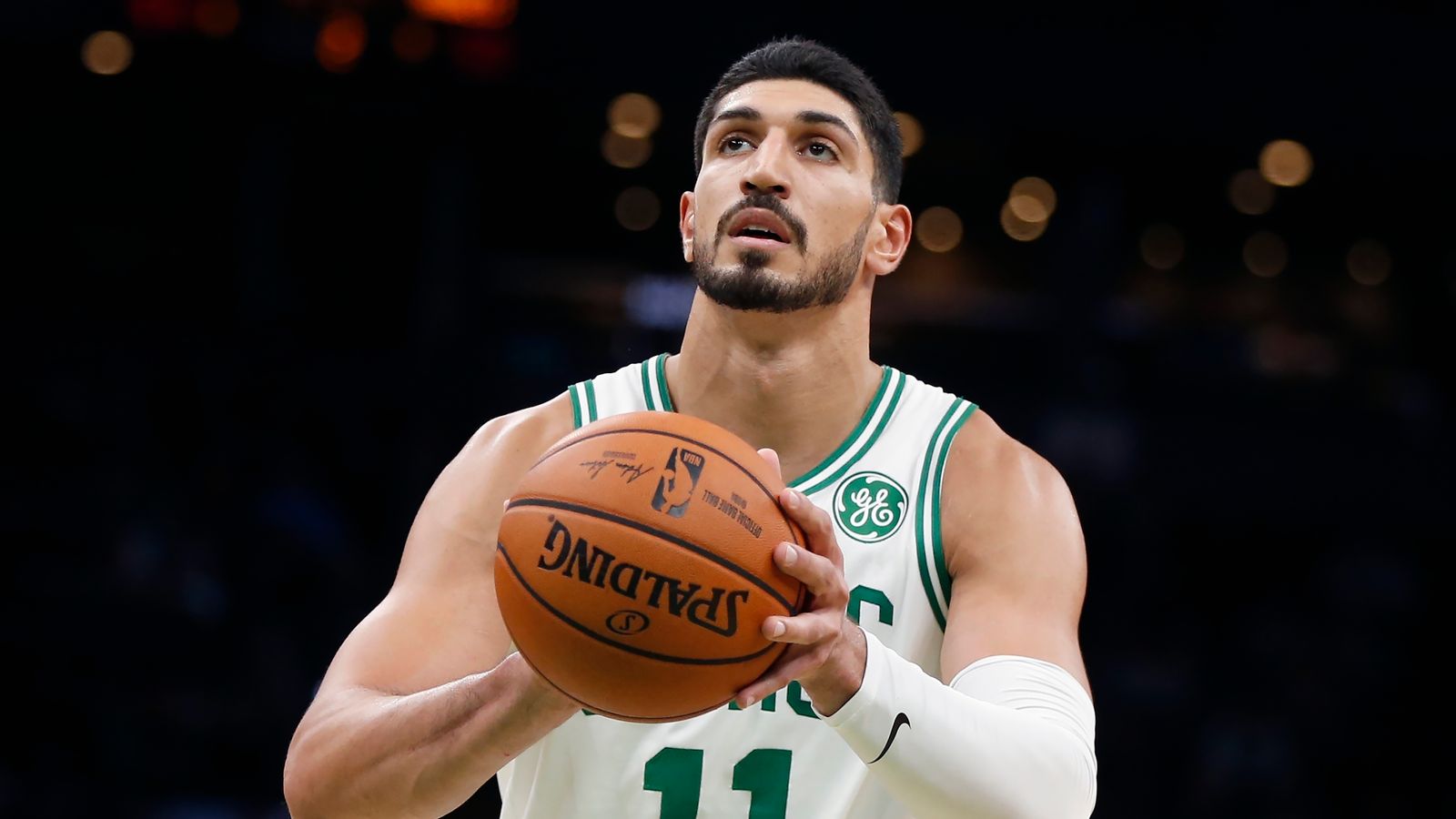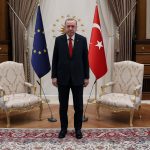China has removed broadcasts of NBA games after a player called for Tibetan independence.
Boston Celtics player Enes Kanter posted a video that started: “Brutal dictator of China, Xi Jinping, I have a message for you and your henchmen.”
He continued: “Under the Chinese government’s brutal rule, Tibetan people’s basic rights and freedoms are non-existent.”
China reacted quickly. Tencent, the tech giant, cut its stream of a game between the Celtics and New York Knicks, the same day and social media was filled with legions of fans expressing their dismay.
A Celtics fan page on Weibo, a Twitter-like service, wrote: “Any information on the team will cease to appear on this Weibo. Any behaviour that undermines the harmony of the nation and the dignity of the motherland, we resolutely resist!”
Kanter’s name also appeared to be blocked on Weibo, with no search results appearing.
The official view was not so explicitly scathing but just as blunt. At a regular press conference in Beijing, Ministry of Foreign Affairs spokesperson Wang Wenbin said that Kanter’s views “were not refuting”.
MPs and peers call for review of parliamentary pensions over China investment concerns
Climate change: China does ‘not need UK actions to encourage’ it to be more ambitious in tackling crisis
China’s growing space capabilities raise fears of an uncontrolled arms race
“Tibet is part of China… We will never accept those attacks to discredit Tibet’s development and progress,” he said.
The views of sports stars have previously provoked Beijing’s anger and caused problems for teams and leagues.
In 2019, the manager of the Houston Rockets, Daryl Morey, tweeted his support for protestors in Hong Kong.
Tencent severed ties with the Rockets, as did the Chinese Basketball Association.
Follow the Daily podcast on Apple Podcasts, Google Podcasts, Spotify, Spreaker
Morey later deleted his tweet but the fallout continues to this day – and his statement was much less provocative than Kanter’s.
NBA’s China operation is worth $5bn and this year its commissioner Adam Silver said the league wanted to play a “positive role” and help defuse US-China relations.
Other sports have also run into trouble.
In December 2019, then-Arsenal star Mesut Özil denounced China’s treatment of the Uyghur minority in Xinjiang – the US has described China’s actions there as genocide, a claim Beijing strongly denies.
Arsenal games were removed from broadcast and Özil’s likeness was even scrubbed from videogames. The club distanced itself from the player’s statement.
China took control of Tibet in 1950 in what it describes as a “peaceful liberation”, although the region had enjoyed de facto independence for around 40 years.
In a report this year, Human Rights Watch said that “authorities in Tibetan areas continue to severely restrict religious freedom, speech, movement, and assembly.”






















